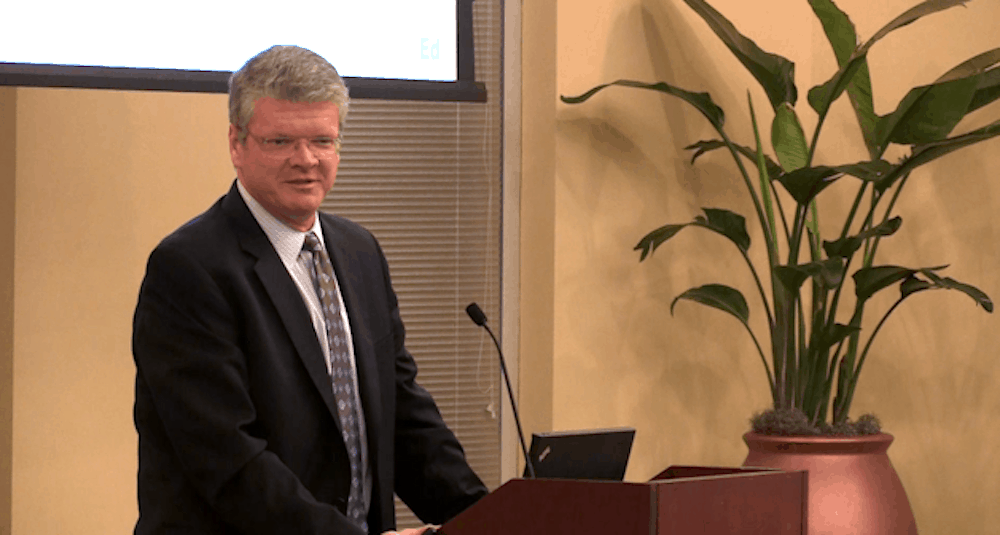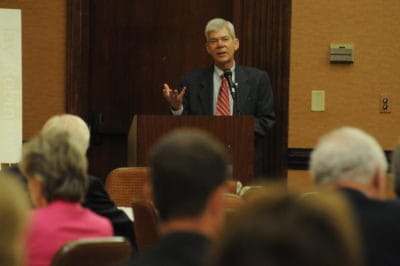As 2016 wound down, North Carolina – and the nation – closed the book on a divisive and unpredictable election year. Unfortunately it seems likely that partisan politics will continue to set the tone for 2017, including in education.
In November, North Carolina voters elected a new governor in Democrat Roy Cooper. At the same time voters gave Republicans another term with veto-proof supermajorities in both the House and Senate and elected Mark Johnson State Superintendent of Public Instruction, the first Republican to be elected to that post since 1896.
On the Federal level, Donald Trump was elected President and tapped a leading school choice advocate in billionaire philanthropist Betsy DeVos to head the U.S. Department of Education. With the DeVos pick, it seems likely issues like vouchers for students to attend private, and in most cases, religious schools, will loom even larger in education policy debates, both nationally and here in North Carolina.
This week the Public School Forum of NC continued its tradition of forecasting the ten issues most likely to impact public schools across the state this year. Our Top 10 revisits some familiar themes from the last two years, including teacher pay and per pupil spending where we still rank near the bottom nationally. New issues include changes in education leadership brought on in part by the 2016 election, as well as new turnaround strategies for low-performing schools and a larger focus on principal pay and preparation which is critical.
How all of this will play out in 2017 is difficult to predict. With Republicans firmly in control in the General Assembly, it’s safe to assume many of the same priorities will continue including private school vouchers, charters, virtual charter schools, and public school takeover initiatives like the Achievement School District that is slated to begin this year.
Looming large is the possibility of a new court-ordered election this fall. There are also lawsuits filed by Governor Roy Cooper and the State Board of Education that seek to overturn two laws passed in a surprise special session in December that, if they are upheld, will limit the power of the new governor and significantly shift responsibility over education policy from the State Board of Education to the new State Superintendent of Public Instruction. Both the Democratic Governor and the Republican-led State Board of Education have challenged the constitutionality of these measures that were passed in a surprise special session in December and signed by a lame duck governor as he stepped out the door.
There is certainly nothing new about a party winning elections and using that power to gain more political advantage. That has been going on for a long time. But it was not always this way when it came to education. Former Republican Governor Jim Holshouser was a strong supporter of public schools and expanded kindergarten statewide. Democrat Jim Hunt followed him as the nation’s first true “education governor,” pushing for higher standards for teachers, raising teacher pay to the national average and creating Smart Start, an early education program that became a national model. He was followed by two term Republican Governor Jim Martin who pushed for increased spending on public schools and improved teacher salaries. He even challenged the Democratic majority in the General Assembly to do more to support public education.
This is not ancient history, although it may feel like it. It now seems education is no longer a bipartisan priority, but rather just another political battle to be fought out for short term electoral advantage. The only thing clear is who loses in that scenario – our state’s children.
Governor Cooper, along with nearly all candidates running for seats in the House and Senate, campaigned on promises to increase teacher pay and invest in our public schools. In recent years, North Carolina has made national headlines for the wrong reasons. But our state has a long and well-deserved reputation as a national leader in investing in education, whether it’s early childhood education, our state’s community colleges and universities, or our k-12 public school system. We hope 2017 will be an opportunity for education to take the lead once again.



